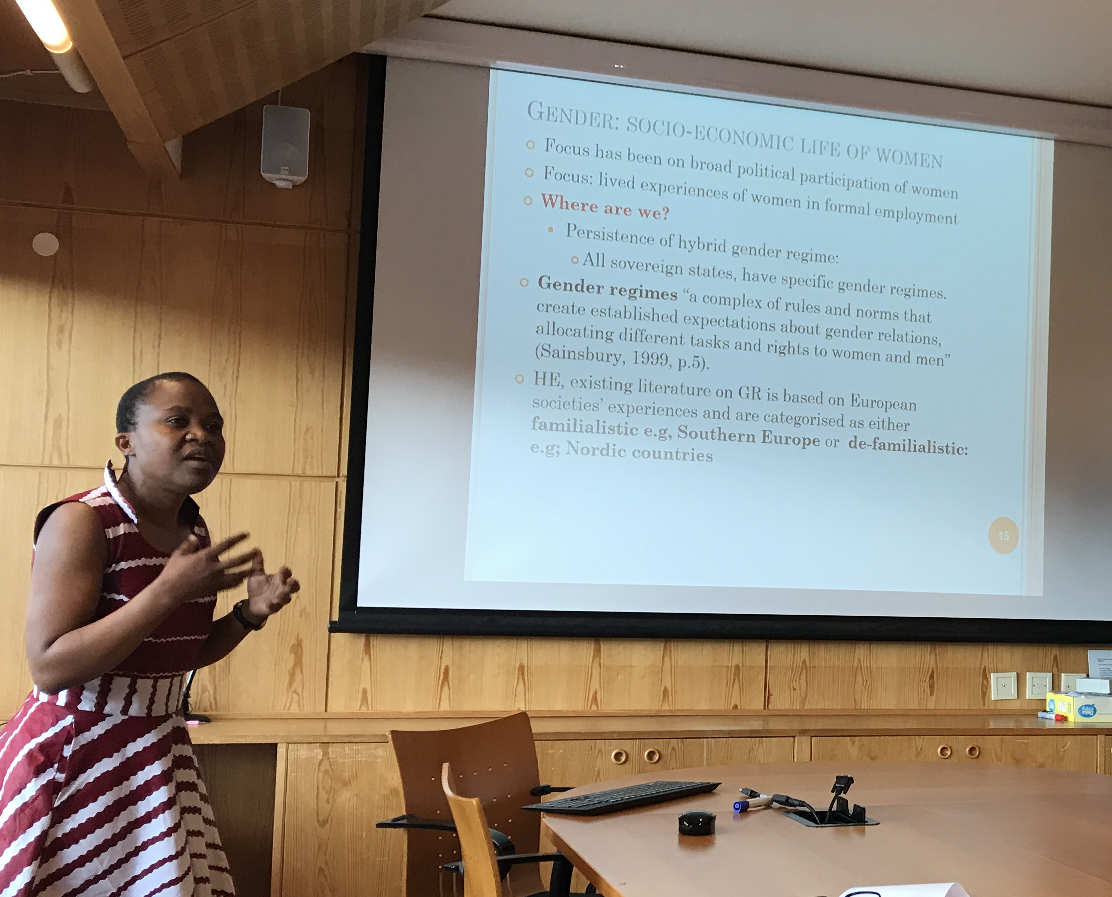Joining SUM for a week of interactions and supervision this fall was Tiyesere Mercy Chikapa (University of Manchester), Michael Chasukwa (University of Leeds) and Joseph Chunga (University of Cape Town). The PhD fellows, who are all affiliated with implementing project partner Chancellor College (University of Malawi), also visited SUM in August 2017.

While in Oslo, Chikapa, Chasukwa and Chunga also presented their ongoing research during the visit in the seminar Governance and Development in Malawi: A Stocktaking. Here, they offered a "reality check" on interventions in the areas of development cooperation, electoral governance and gender dimensions in Malawi. The presenters argued that the adoption of democracy in 1994 raised hopes of a new era of governance and development in Malawi, but poor policy approaches, conflicting interests of development players and weak governance structures have all contributed to insatisfactory results.
Development aid, electoral quality and gender regimes
Michael Chasuwka, conducting research on the political economy of development in the context of pooled finance development mechanisms, noted how the Malawi Local Development Fund, as a pooled fund aid modality, has further weakened already weak institutions in Malawi, through bypass arrangements and unstable institutional design. Joseph Chunga, writing his thesis on electoral quality in African countries, elaborated on how weaknesses in key electoral governance structures explain why Malawi has delivered unstable quality of elections after the democratic success of 1994. Finally, Tiyesere Chikapa, researching gender regimes and policies in non-Western countries, argued that achieving gender equality has become more of a rhetorical mission in Malawi, with limited results on the ground. She further claimed that in a society such as Malawi, where both the state and the labor market provide limited support to women, the few women employed in the formal sector often face work-family conflicts due to dual burden.
Mr. Chasukwa and Ms. Chikapa are expected to conclude their doctoral studies in 2018, while Mr. Chunga is expected to finish in 2020.